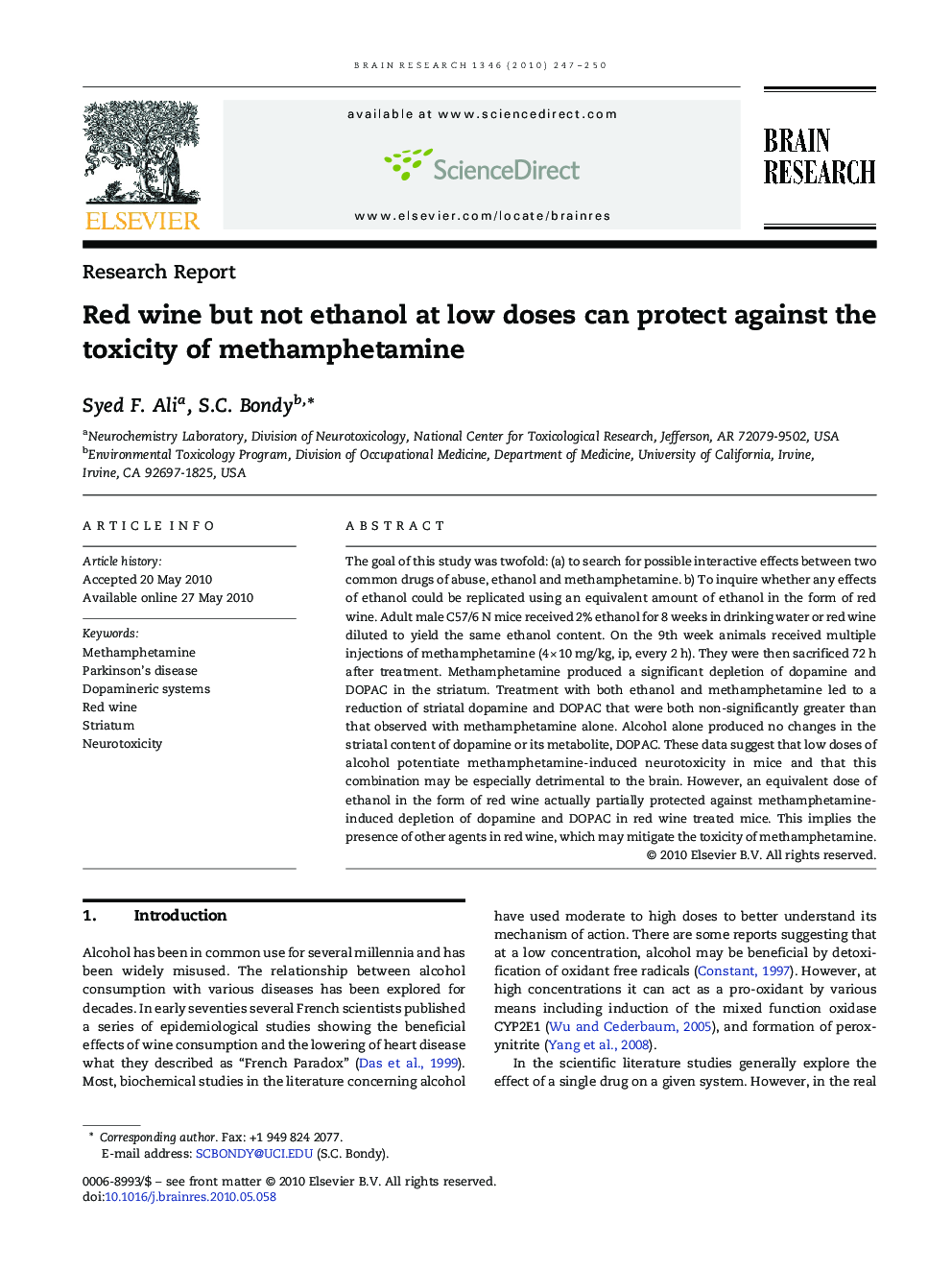| Article ID | Journal | Published Year | Pages | File Type |
|---|---|---|---|---|
| 4326676 | Brain Research | 2010 | 4 Pages |
Abstract
The goal of this study was twofold: (a) to search for possible interactive effects between two common drugs of abuse, ethanol and methamphetamine. b) To inquire whether any effects of ethanol could be replicated using an equivalent amount of ethanol in the form of red wine. Adult male C57/6Â N mice received 2% ethanol for 8Â weeks in drinking water or red wine diluted to yield the same ethanol content. On the 9th week animals received multiple injections of methamphetamine (4Â ÃÂ 10Â mg/kg, ip, every 2Â h). They were then sacrificed 72Â h after treatment. Methamphetamine produced a significant depletion of dopamine and DOPAC in the striatum. Treatment with both ethanol and methamphetamine led to a reduction of striatal dopamine and DOPAC that were both non-significantly greater than that observed with methamphetamine alone. Alcohol alone produced no changes in the striatal content of dopamine or its metabolite, DOPAC. These data suggest that low doses of alcohol potentiate methamphetamine-induced neurotoxicity in mice and that this combination may be especially detrimental to the brain. However, an equivalent dose of ethanol in the form of red wine actually partially protected against methamphetamine-induced depletion of dopamine and DOPAC in red wine treated mice. This implies the presence of other agents in red wine, which may mitigate the toxicity of methamphetamine.
Related Topics
Life Sciences
Neuroscience
Neuroscience (General)
Authors
Syed F. Ali, S.C. Bondy,
